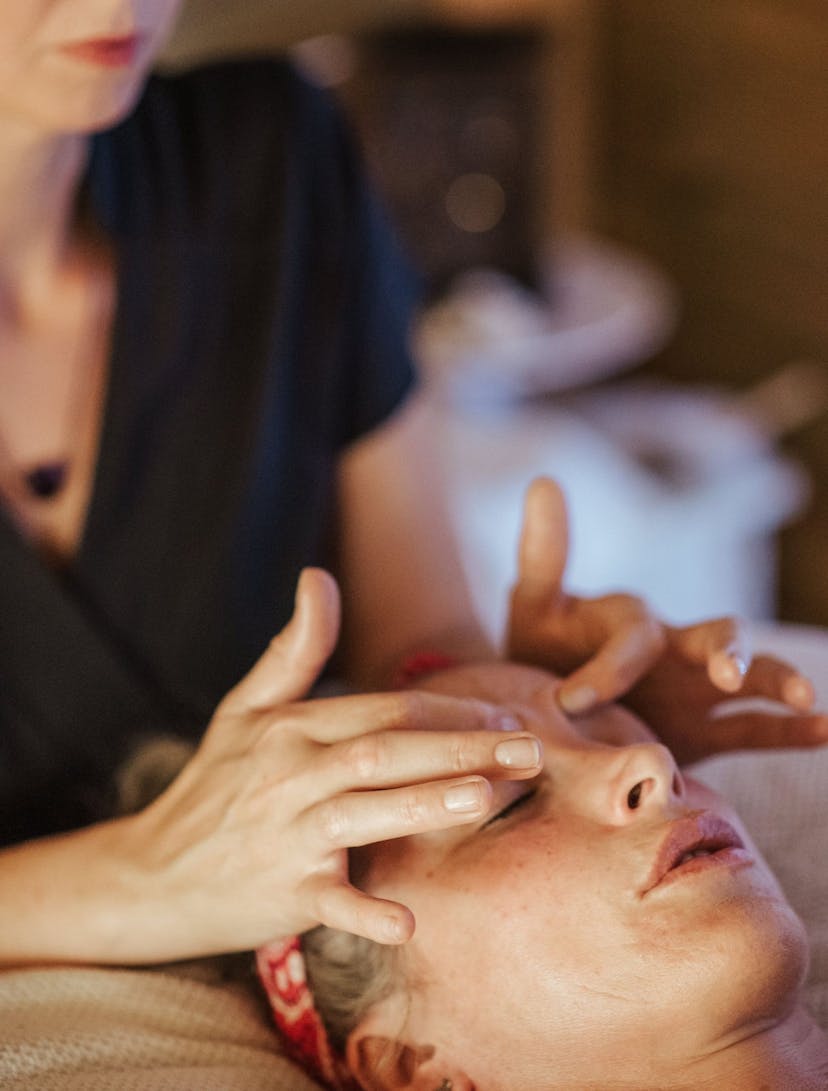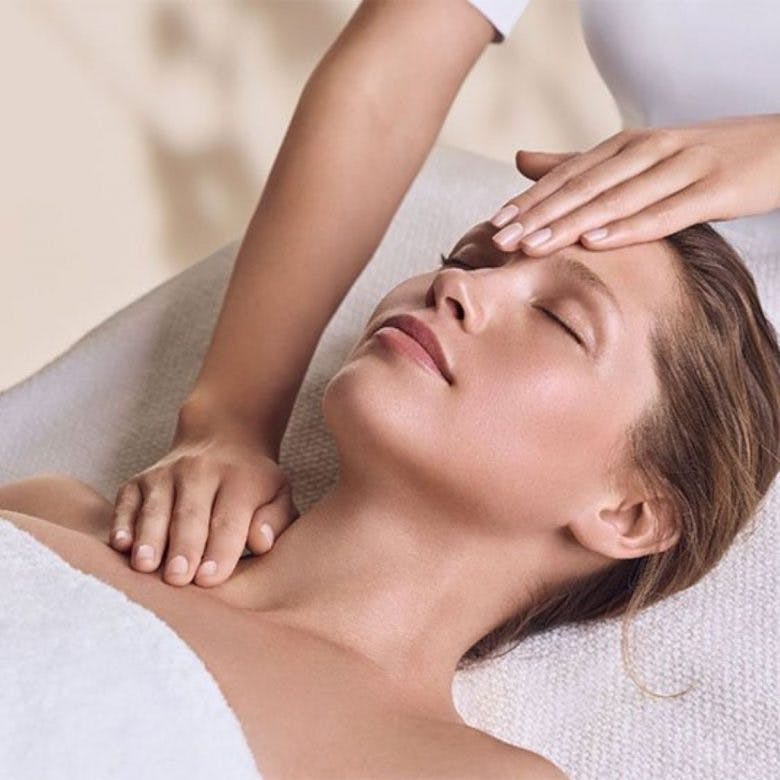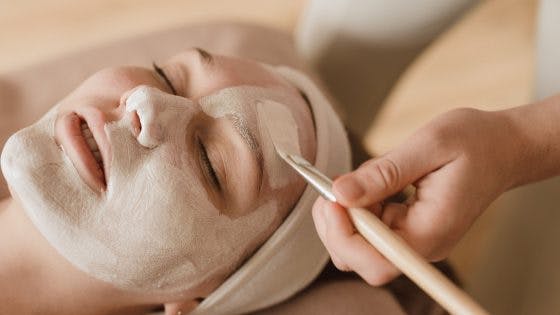Everything You Need To Know About Finding A Facialist
7 minutes read
Building the perfect skincare routine starts with understanding your skin’s unique type. This will steer you towards products that target your issues and tune your complexion. However, most of us don’t get it right, but some professionals can easily take the guesswork out.
“We [facialists] can educate you. We can help you discover your skin type and decipher which ingredients and products to use. In addition, we can provide you with honest advice and keep track of your skin’s progress and goals,” Sarah Murray, Director at Sarah Murray Beauty and Skin Clinic tells Beauty Daily.
Before you rely on your Google search skill and book the first sponsored facialist ad that pops up, read what three pros have to say. From traits to look for and questions to ask to best facial recommendations: here’s a comprehensive guide on how to find a brilliant facialist wherever you may reside. Let’s begin.

What is a facialist?
A facialist, also known as an aesthetician, is a licensed skincare professional who performs non-invasive and minimally invasive procedures and spa treatments.
While on the search, you will encounter two types of facialists or aestheticians:
1. General aestheticians
interchangeably referred to as skin or beauty therapists. They work in a spa or salon setting like Clarins Spa. They conduct professional treatments and services such as indulgent body massages and facials and are trained to use the best massage movements and products.
Did you know Clarins started as a spa before becoming a skincare brand? Yes, Clarins was founded as a spa in 1954 by Jacques Courtin Clarins. The spa is truly at the heart of the brand, whose unique expertise combines plant extract-enriched formulas with the highly effective manual techniques of expert beauty therapists known as the “Clarins Touch.” With over 65 years of experience, you know your skin is in expert hands with Clarins.
Choose from 14 luxurious Skin Spa treatments. Clarins also provide customised beauty routines after a skin analysis and are adapted to one’s habits, lifestyle, and preferences, to maintain and elevate skin’s health.
2. Medical aestheticians
are medical doctors with certificates or training in the aesthetic discipline. They work in medical settings and have more of a clinical focus. They work closely with dermatologists and perform more invasive procedures like injections of neurotoxins and dermal fillers, chemical peels, microdermabrasion, nutrition, laser and IPL.
Both types of aestheticians require the same licensing. Skin beautification is the core of what they do.
Important to note: If you are dealing with a specific skin abnormality or disorder, or a severe skin reaction, it is always best to consult with a dermatologist.
5 traits of a decent facialist, according to experts
Sarah Murray, Director at Sarah Murray Beauty and Skin Clinic
1. Has a proven track record
Look into how much experience they have. Check their website and social media channels. Go straight to the testimonials, reviews, and ratings, before and after pictures, and client journeys. Check what brands they work with and what treatments they can offer and if they work with a range of different modalities.
2. Has genuine intentions
Do you get a good vibe from them? You need to trust them with your skin, so you have to feel comfortable in their presence. If you seek their services for a specific skin issue that you feel self-conscious about, you have to be comfortable telling them every detail of your lifestyle and medical history. You also want to sense that they have your best interests at heart to the point they will refer you to someone else if they cannot treat your specific issue.
Justine Masters, Licensed Skin Therapist and Holistic Facialist
3. Performs an in-depth consultation
A good facialist should perform an in-depth consultation before your treatment and listen to your concerns. They should never tell you what your concerns are.
I usually get them to list their top three concerns on my consultation forms.
First, I will ask them what products they use and their skincare routine.
Also, if they use any actives like vitamin C or vitamin A. I seek information about their diet and lifestyle, any adverse reactions and allergies.
4. Provides a personalised beauty routine
A good facialist should have you on a good at-home skincare routine and create a plan of action, educating you on how best to take care of your skin at home.
Dr Pamela Benito, Aesthetic Medicine Specialist
5. Has a passion for beauty
To find the best aesthetic practitioner or facialist, you should look for a professional with excellent communication skills. They should be passionate about beauty, aesthetics, and skin health, with an attention to detail, caring and empathetic—someone who loves to help and look after others, giving them the most relaxing experience.
You can start learning about your skin’s specific needs and tailoring your skincare routine. Clarins Beauty Coaches are excited to learn about your skincare needs and help you create a customised skincare routine online without leaving your house. They are available via live chat, audio-only call or the full video experience – the choice is yours! Click here.
How to spot a bad facialist
Here are 7 red flags you shouldn’t ignore.
- Doesn’t ask any questions.
- Has divided attention and is often distracted during your sessions.
- Uses the wrong products for your skin type or is too aggressive, using decanted products or generic ones that look dirty or outdated.
- Over-promises instant results and quick fixes and doesn’t manage your expectations realistically.
- Employs a hard sell when it comes to aftercare
- You’re not seeing any results after a year of sessions and treatments.
- Doesn’t guide or give you a home skincare plan
What are the benefits of visiting a facialist?
If your skin is a top priority, you should make a visit to your facialist a top priority.
1. You will be guided on how to build a solid skincare routine and stick with it
“Your facialist will work alongside you to create a treatment plan that will suit your time and budget. We have access to a variety of professional only products that are more active and can achieve results in a quicker timeframe for you. A good home care regime must accompany this alongside otherwise you can hinder your progress,” says Murray.
Read next: Your Skincare Routine Order Explained
2. Your skin will age beautifully via regular treatments
Besides the relaxation and self-care benefits, facials can help reduce breakouts and the appearance of blackheads by removing dirt, oil, and impurities, keeping the skin clear and healthy.
“Receiving a deep cleanse and regular exfoliation removes dead skin cells, promoting new skin cell growth and improving skin tone and texture by stimulating circulation and bringing oxygen to your skin. They will also allow your skincare products to be absorbed into your skin more effectively,” says Dr Benito.
Dr Benito says because our skin cell’s life cycle is 28 days, a facial treatment once a month would be recommended to help this cell renewal process and make sure your skin always glows.

Beauty Daily recommends booking the 70 min Radiance Booster. This glowing treatment will refresh tired, lacklustre skin, delivering a double shot of radiance and hydration. In addition, microcirculation boosting massage and targeted products will work to create deliciously plump, luminous skin. Book here.
3. You’ll be able to address a skin concern before it even becomes a more significant issue
Prevention is better than cure and taking care of your skin alongside your facialist will have numerous benefits in the long run.
“We have trained for years and have the knowledge on how to deliver professional techniques to keep your skin functioning as it should and to maintain it for as long as possible,” Murray assures.
Questions to ask a facialist
Masters share a list of questions you can ask your facialist.
- What type of treatments do they do?
- What products do they use?
- How often should they come (if you are dealing with a specific concern i.e. acne, it may be weekly)?
- What should I avoid doing before my treatment, Botox or filler or laser treatment (two weeks before using technology)?
- What shall I be doing post-facial, and what to avoid?
Sign up for our newsletter
We will keep you in the loop for special offers, exclusive gifts and product news.

